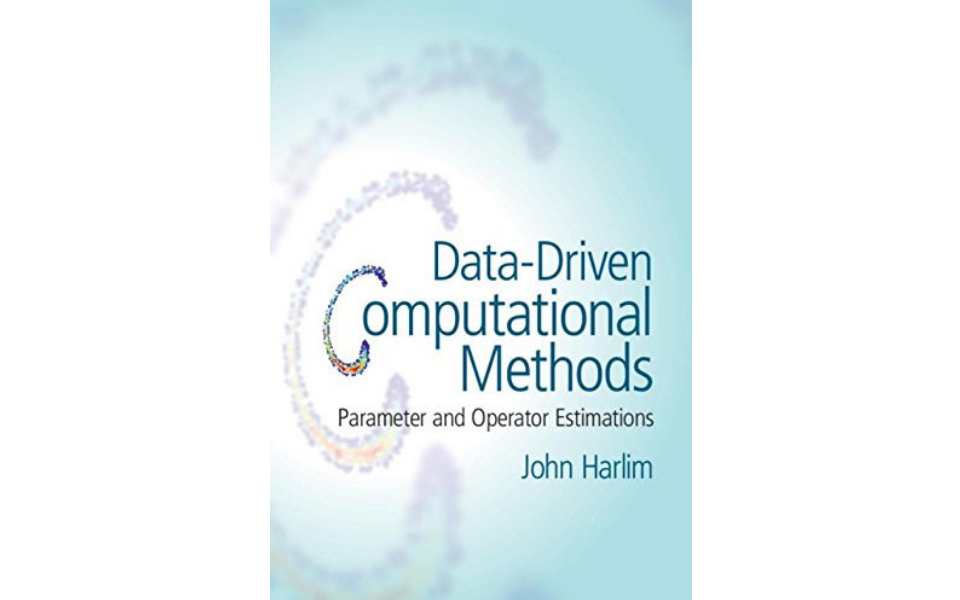
Professor expands scope of data science techniques in new book
Posted on September 24, 2018UNIVERSITY PARK, Pa. — For some, publishing a book is a lifetime achievement.
For John Harlim, professor of mathematics and meteorology at Penn State and an Institute for Computational and Data Sciences (ICDS) co-hire, it is similar to reviewing his last decade of research.
Harlim’s “Data-Driven Computational Methods: Parameter and Operator Estimations” describes data science from the classic mathematical perspective and provides rigorous understanding of many existing new techniques that have been successfully used to analyze data.
“The development of this book was based on a special-topics course in uncertainty quantification,” Harlim said. “Throughout the year, I learned that these topics are intimately connected to data science. Especially, I realized that there is an emerging need to understand many purely data-driven or statistical learning techniques that evidently outperform the classical modeling techniques in terms of prediction and uncertainty quantification in various domain of applications.”
The book, which was published this year by Cambridge University Press, provides a balance of mathematical rigor and numerical algorithms on various methodologies, including parameter and operator estimations that can be used in any discipline that values scientific computations.
“In a very broad sense, this book is about modeling dynamical systems, so you can apply it in any discipline,” he said. “Everybody’s trying to model something.”
The book is designed for graduate students trying to develop a deeper understanding of statistical modeling. It also could be an asset for senior researchers looking for new perspectives on nonparametric modeling techniques of dynamical systems.
While this book can be classified as a research monograph, it is intended to be educational. Accompanied with supplementary codes that reproduce various examples in the book, the author hopes that it can be used for self-study. That learning aspect is driven by the environment that surrounds Harlim. Since arriving at Penn State in 2013, he has taken advantage of the various minds at his disposal in the McAllister Building — home of the Penn State Department of Mathematics.
“I would say especially here at Penn State, the math department is a vibrant research institution, and I feel very fortunate to be able to consult with many colleagues who are world-class mathematicians,” he said. “I often found colleagues who can give me relevant information on topics that I am not familiar with.”
For Harlim, writing is part of the learning experience. He previously co-authored a book in 2012 with his postdoctoral mentor, Andrew Majda, focusing on the research into filtering noisy data and making predictions based on incomplete information.
“If you want to understand something, you should learn how to write it in a concise manner,” Harlim said. “In fact, it is very satisfying if I can explain a subject from various angles.”
